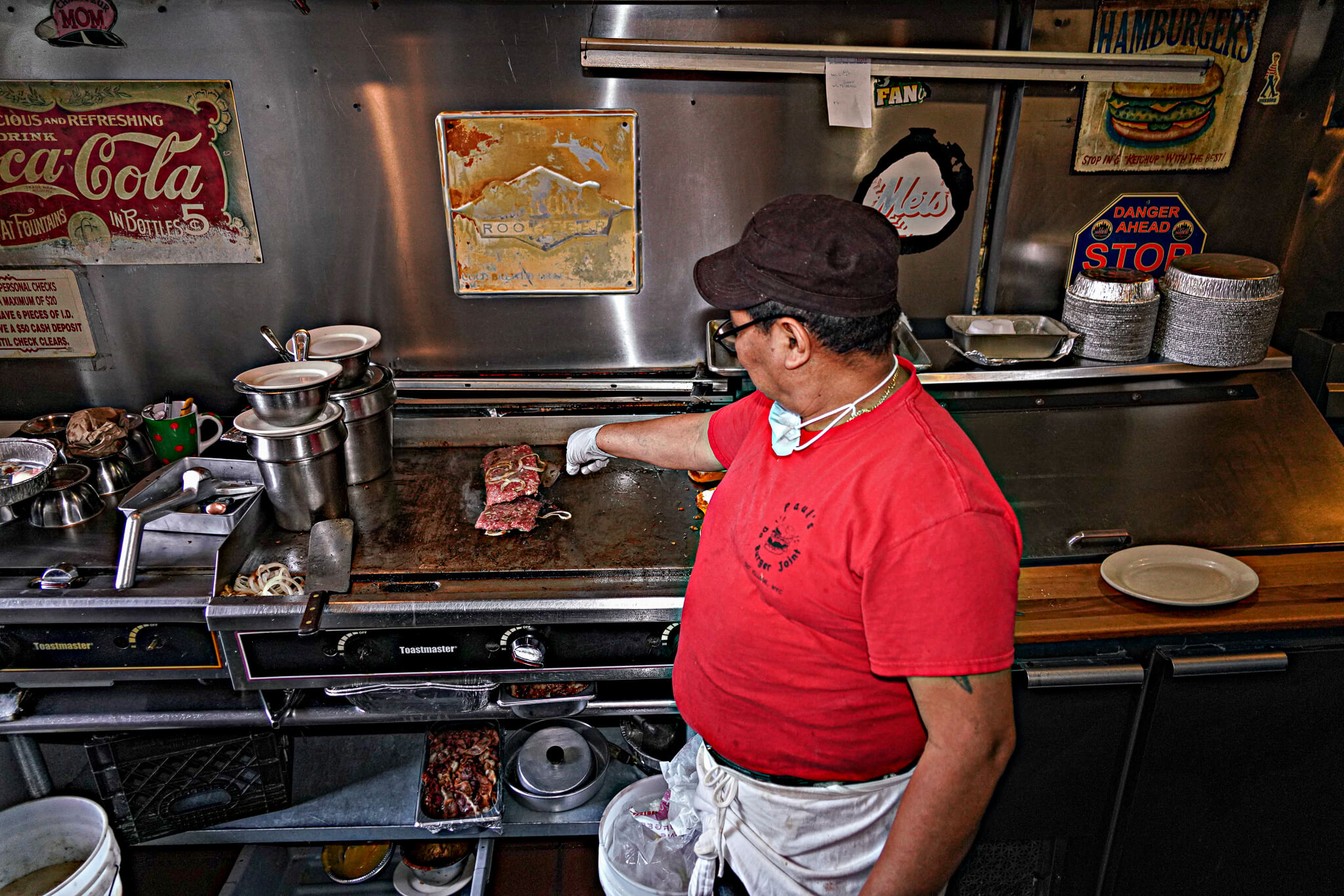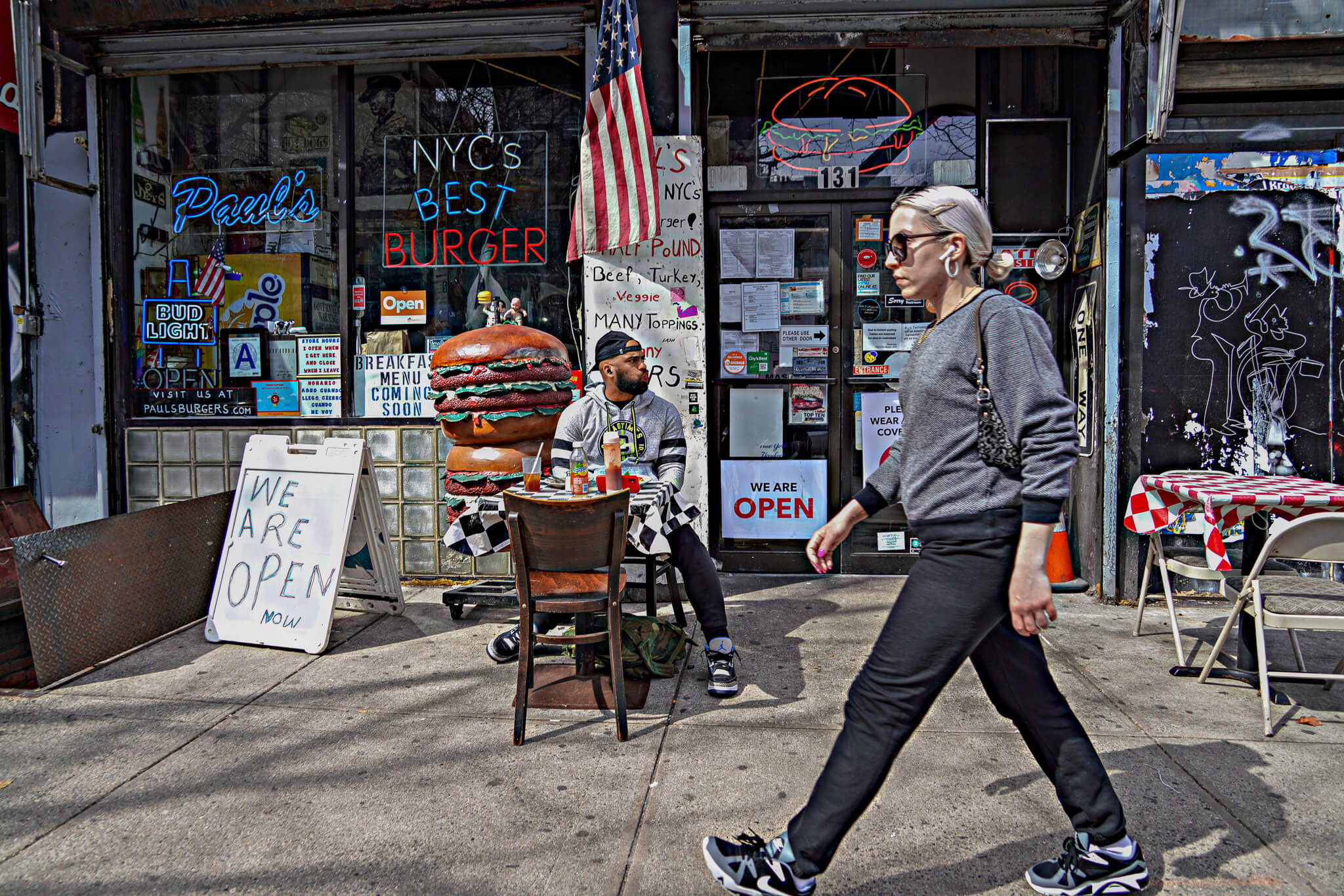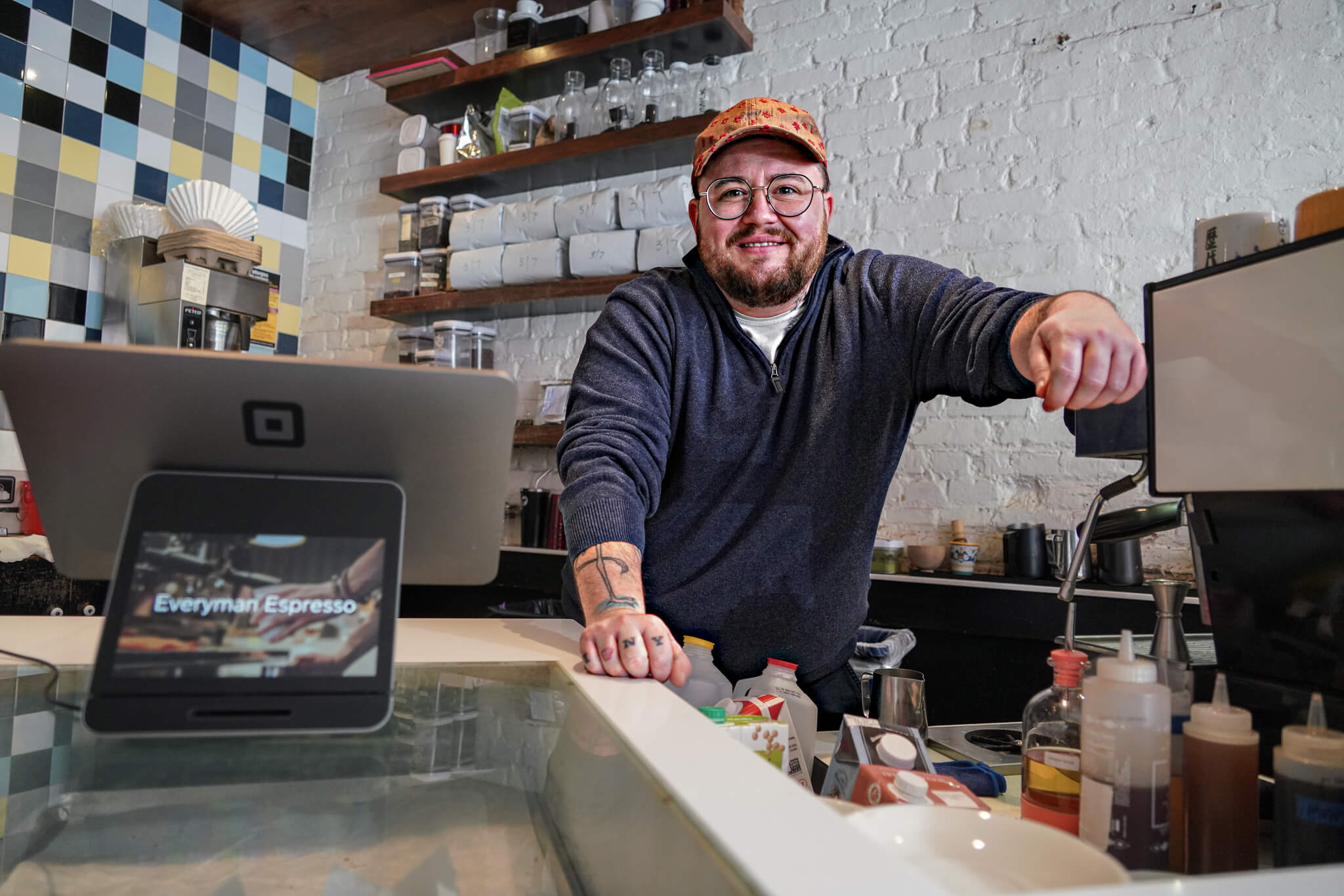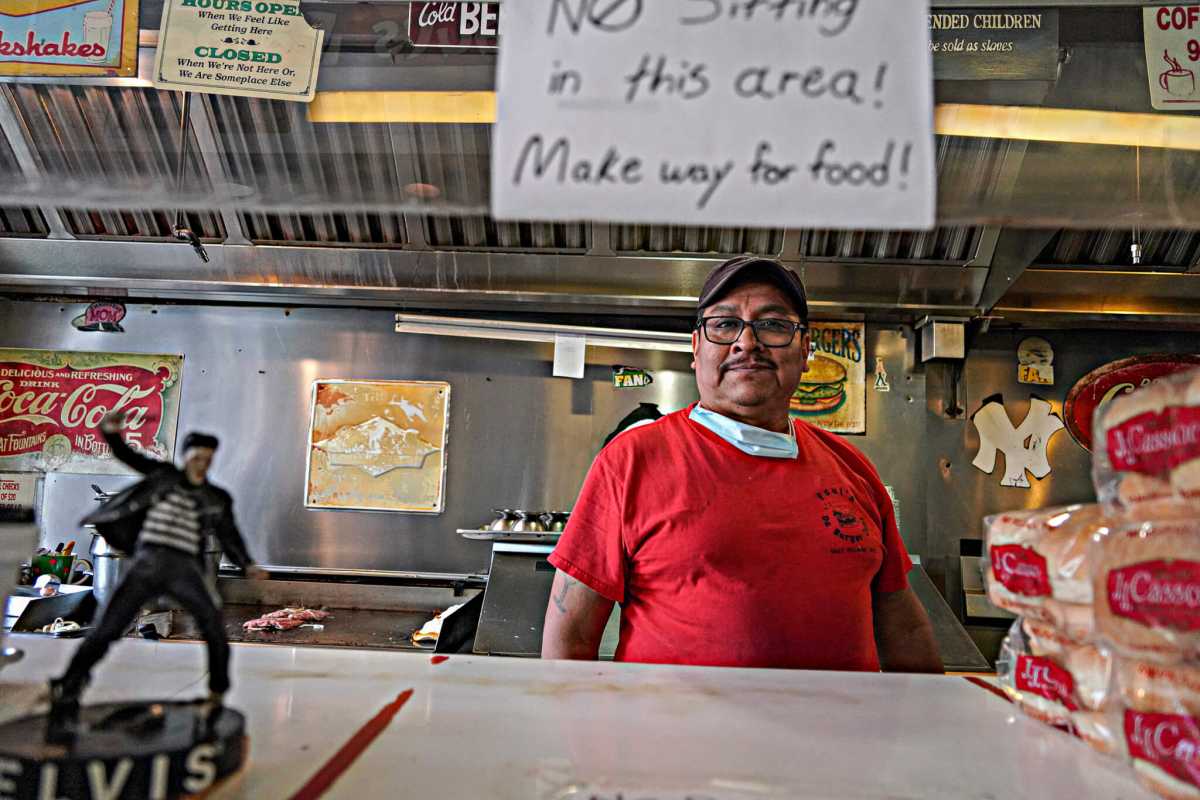While elected officials tout the city’s comeback from the ashes of the COVID-19 pandemic, there are those who are still feeling the economic strain the deadly virus wrought.
On March 7, Mayor Eric Adams toured the East Village on the day several mandates were lifted, including a protocol that required restaurant staff to check vaccine statues before allowing diners to grab a table inside. While the eased restrictions will inevitably lead to more customers, local restaurant owners say the economic burden of the last several years still weighs heavy, even as the rest of the city begins to bounce back.
Paul’s Da Burger Joint, located at 131 2nd Ave., has been a staple of St. Marks Place since 1989. But two years of the economic crisis induced by the pandemic, mask and vaccine mandates, harsh fine penalties, lack in tourism, and ever-changing health and safety protocols has left owner Jose Angel Amigon with more of a headache and heartache than hope for the future — the much-touted comeback has passed him by.
“It hasn’t been that good. We’ve lost business, people have been aggravated [with the mandates] and I’m tired. I feel like I want to close the place,” Amigon said.
While Amigon has always had a staff of six to eight employees, it’s been difficult to maintain that number with some falling sick due to COVID-19 and others needing to quarantine. He says that he is always short staffed, despite having about seven on the payroll. The city may be open, Broadway may be welcoming tourists, but in the East Village small restaurants like Paul’s Da Burger Joint are still struggling to make ends meet.

Amigon told amNewYork Metro that he is behind on gas, electric, and rent, and any small business aid he received barely covers the rent. Now, inflation has raised the price of his inventory as well as bills — it has been a never-ending obstacle of hoops to jump through, and Amigon is physically and mentally exhausted. His business, with outdoor dining, is only at its best earning 40% in revenue, but all of this is vastly depleted when paying his employees and purchasing products.
“We’re trying to have a menu online, but we have bills on top of bills. I tried to make sure my workers have a job, but it doesn’t help. With inflation everything has gone up. I’ve tried to survive with my old prices, but I can’t. Now, I feel like I have to raise product prices because of what’s going on around the world. It’s unfair, we don’t have a choice,” Amigon said, adding that customers have complained about the increased prices at Paul’s Da Burger Joint.
Also, Amigon says his burger bun deliveries have increased from a standard flat fare, and that’s not including other inventory items which sometimes are not reliable since products are not stocked to the same capacity as they were once were.
Amigon says he feels like he has to work seven days a week to pick up the slack. During the pandemic he tried to save money, yet everything he put aside had to go toward Plexiglass shields and other safety materials. He also adds that he’s currently fighting a ticket for his outside dining area because it’s not positioned in the right section—another bill to pay.

In addition to the stress of managing a business during a pandemic, implementing the mandates has left him spat upon and his storefront vandalize by disgruntled customers who were unwilling to wear a mask or show their vaccine card.
“I’m old, and I feel like I want to throw in the towel and say goodbye,” Amigon said while pressing his hands against the counter and shrugging in defeat.
Amigon is not the only one struggling to keep up with rent and other financial liabilities as the government aid runs dry.
Sam Penix, the owner of Everyman Espresso, a chain of coffee shops, explained that the last year in particular has been rough for him.
“The last year has been tough actually, because–and I always knew that this was going to be the hardest part–because there’s a gap in between the funding and the help that everyone was receiving, whether it be PPP or grants or, you know, private, nonprofit organizations. There was a lot of help in the beginning and then at some point, that’s going to run out,” Penix said.

Penix shared his frustration that some landlords see streets full of pedestrian traffic and believe that the financial woes should be a worry of the past without understanding the amount of money they still owe over the course of the pandemic. Penix also revealed that he was forced to shut down one of his locations at the beginning of this month during a time when things should be getting better, not worse.
“We closed our SoHo shop, which was on West Broadway and Canal Street back on March 1. It was the end of the lease, but also in that area the traffic from tourists and office workers haven’t come back. We’re also gonna see a hit because office workers aren’t coming back at the same levels and they may never,” Penix said.
As the year moves to a more profitable time for restaurant workers, owners ask New Yorkers not to assume and remember their continued struggle.
































